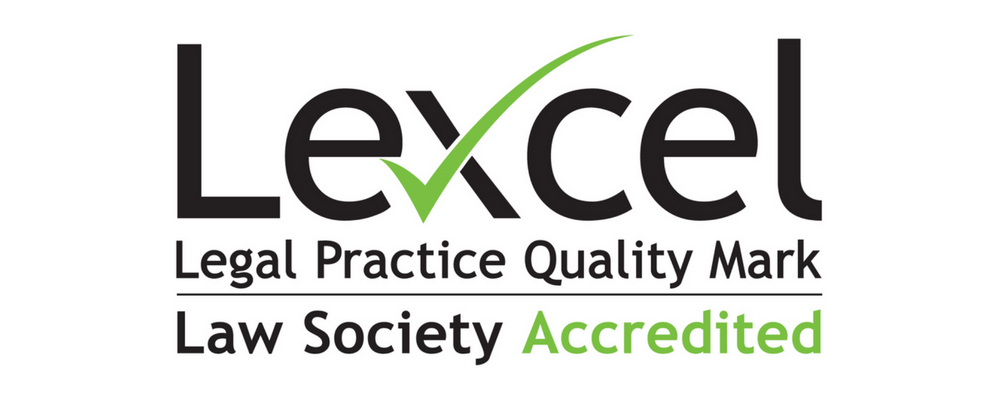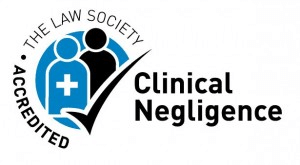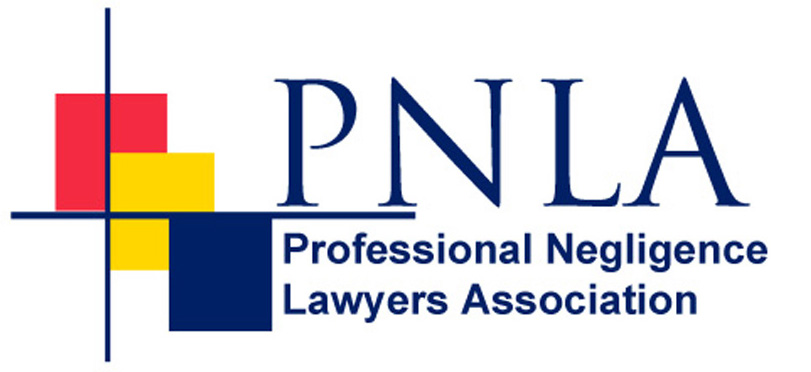Hospital Negligence - Making a Complaint Against the NHS
If you are thinking of making a complaint regarding negligent NHS treatment, or private treatment, it is important to bear in mind that you cannot just take legal action without first following the NHS Complaints Procedure (or private hospital complaints procedure). But you are within your legal rights to consult a specialist clinical negligence solicitor as soon as possible to help you build your strongest case at the outset.
Leading Clinical Negligence Specialist with 30+ Years’ Experience
Wiseman Wingate Solicitors offers free advice on making a complaint in situations where there is a potential clinical negligence claim. Our experienced clinical negligence solicitors can help to advise you on writing your letter of complaint regarding poor medical treatment, whether in respect of a hospital, clinic, GP or other doctor and whether NHS treatment or private treatment.
If you have made a complaint against the NHS and you are not satisfied with the outcome, the team at Wiseman Wingate Solicitors are here to help. All cases are dealt with by Tony Wiseman, a leading clinical negligence specialist with 30 years of experience. Contact us on 01428 687717 or complete our online contact form .
In most types of Clinical Negligence cases the first step, subject to time constraints, is to make a complaint. The Organisations are Covered by the NHS Complaints Procedure?
- All NHS Trusts and Bodies
- Services provided by the NHS including GPs, dentists, optometrists and pharmacists
- Walk-in centres
- Mental health services
- Private Health Care establishments if the treatment has been paid for by the NHS
NHS Complaints Procedure
Expert for birth injuries, details of the NHS Complaints Procedure can be found online, or at most GP surgeries’ receptions. You should direct your complaint to the Chief Executive of the hospital where you received treatment. If you are making a complaint to a clinic or GP Practice, then send your complaint to the relevant complaints manager.
How to make your complaint
Complaints can be verbal or in writing:
- Verbal complaints should be recorded by the organisation in a written document, which you then approve after they have sent a copy to you.
- You can also complain via email or letter, which should give full details of medical treatments received, steps you have taken already to raise your complaint, details of why you believe your treatment was unacceptable, and how it can be remedied.
At Wiseman Wingate, we are always willing to advise on the questions to be asked and the content of a complaint letter, at no cost to you. Feel free to contact us to discuss making a complaint.
Keep records of your complaints
Keep paper records of everything you write, as these may be required for a serious investigation report or as part of the NHS investigations process. If you do not feel comfortable writing your own complaint letter, you could seek legal advice on writing a letter of complaint regarding poor medical treatment. Our experienced clinical negligence solicitors would be happy to help you if so.
After I Complain, What Happens Next?
The person your complaint is addressed to should acknowledge receipt in three working days and write a letter to you explaining how your complaint will be dealt with. There isn’t a formal time limit within which they should get back to you with a response, but NHS guidelines suggest 25 working days (this might not always be possible).
You should be kept informed of the investigation process and may need to attend an in-person meeting as part of an investigation process. If you don’t want to attend the meeting, you don’t have to, and can instead have a formal written response to your complaint. The NHS or private hospital’s response should cover an explanation regarding your treatment and concerns.
You may be offered an apology or other explanation for actions undertaken during your treatment. Consider the response you have been given carefully.
Making a Complaint to PALS – What is PALS?
Note that all NHS complaints are dealt with by PALS (the NHS Patient Advice and Liaison Service). However, it’s not the responsibility of PALS to discipline or dismiss medical practitioners for negligence, or indeed for awarding any form of compensation.
Independent review by the Parliamentary and Health Service Ombudsman
If you are not satisfied, or you haven’t received a reply in six months, you can request an Independent Review by the Parliamentary and Health Service Ombudsman.
Write to the Ombudsman and state your medical treatment and the hospital concerned, their response, why you are dissatisfied and why an independent investigation is necessary. You should receive a reply to this letter in two working days. The Ombudsman will look into your case, and if they agree, they may be able to seek financial compensation for you.
Clinical Negligence Solicitors for Claims Against Hospitals in Essex & Across England & Wales
We routinely help clients in Essex and across England and Wales make clinical negligence claims against hospitals and GP Practices. We could help you to bring a relevant clinical negligence claim against any of the following:-
- Mid and South Essex NHS Foundation Trust Hospitals including:-
- Southend University Hospital
- Broomfield Hospital
- Basildon University Hospital
- Braintree Community Hospital
- Orsett Hospital
- St Michael’s Hospital
- St Peter’s Hospital
- NHS Mid Essex CCG practices or bodies including those listed here.
- NHS North East Essex CCG practices or bodies including those listed here.
- West Essex CCG practices or bodies including those listed here.
Making a Complaint Regarding NHS Treatment at other Hospitals
We can also help you in respect of making a complaint regarding NHS treatment from other medical bodies and hospitals in England and Wales, including but not limited to the following:-
- Blackpool Teaching Hospitals NHS Foundation Trust
- Buckinghamshire Healthcare NHS Trust
- Burton Hospitals NHS Foundation Trust
- Dartford and Gravesham NHS Trust
- George Eliot Hospital NHS Trust
- Hull and East Yorkshire Hospitals NHS Trust
- Isle of Wight NHS Primary Care Trust
- Medway NHS Foundation Trust
- Mid Cheshire Hospitals NHS Foundation Trust
- North Cumbria University Hospitals NHS Trust
- Northampton General Hospital NHS Trust
- Northern Lincolnshire and Goole Hospitals NHS Foundation Trust
- Shrewsbury and Telford Hospital NHS Trust
- The Dudley Group of Hospitals NHS Foundation Trust
- The Royal Wolverhampton Hospitals NHS Trust
- United Lincolnshire Hospitals NHS Trust
- University Hospitals of Morecambe Bay NHS Foundation Trust
- Worcestershire Acute Hospitals NHS Trust
- York Teaching Hospital NHS Foundation Trust
- Medway Maritime Hospital
- The Royal London Hospital
- Whipps Cross University Hospital
- Hull Royal Infirmary
- Royal Bolton Hospital
- Pinderfields General Hospital
- Croydon University Hospital
- Queen’s Hospital, Romford
- Newham General Hospital
- Queen’s Medical Centre, Nottingham
NHS Clinical Negligence Claims Compensation Advice in Essex & North-East London
At Wiseman Wingate Solicitors, we can help you seek compensation and get the answers you need from the NHS. If you need help making a complaint or if you have made a complaint based on the treatment you received and are unhappy with their response, we can represent you and investigate any medical negligence that may entitle you to compensation and a formal apology.
You can talk to us about our ‘No Win No Fee’ policy on clinical negligence claims. All clinical negligence cases are dealt with by a leading clinical negligence specialist with 30 years of experience and we have helped some of our clients recover multi-million-pound compensation awards.
If you think you might have a claim for medical negligence, we are here to get you the compensation you deserve. Contact our office in Brentwood on 01428 687717, or submit an enquiry via our online form.
Tony Wiseman - Notable Cases
Wiseman Wingate Solicitors have a busy Clinical Negligence practice acting for Claimants. Tony Wiseman is head of Clinical Negligence, is experienced covering a full range of claims encompassing injuries of the utmost severity including spinal surgery, neurosurgery, birth injury cases, delayed diagnosis of cancer, dentistry, surgery and ophthalmology.
Tony is a member of the Law Society Clinical Negligence Accreditation Panel.
The names of clients have been anonymised for confidentiality reasons.
The Claimant, who was a baby at the time, contracted Tuberculosis at the time which was misdiagnosed resulting in severe Cerebral Palsy.
A multi-million-pound settlement was achieved.
Cerebral Palsy injury suffered at birth. The claim settled for a multi-million-pound sum.
Tony specialises in “brain injury baby cases” where neurological other injuries suffered at birth and has settled many multi-million pound claims of this nature.
The client suffered Erb’s Palsy injuries at birth. The claim settled for a sum just under 1 million pounds.
The client suffered a stroke and was taken by the Ambulance Service to hospital that did not have an Acute Stroke Unit, as a consequence there was a delay in treating the Claimant’s symptoms. The effect of which was to cause the client’s final symptoms to be worse than they otherwise have been.
The claim settled for a 5 figure sum.
The client has bowel surgery resulting in an infection that caused her to suffer a significant injury.
The client was retired and the quality of life has been adversely affected due to the Defendant’s negligence.
The case settled for a 6 figure sum.
The Defendant failed to diagnose that our client had suffered a testicle torsion, as a result the client required an operation.
The case settled for a 5 figure sum.
Our client had an operation to be sterilised which failed due to the clips being placed in the wrong place.
Another operation was required, the Claimant received a 4 figure sum in settlement.
Our client suffered damage to teeth as a result of negligent dental care and received a 4 figure settlement.
Client Stories
A clinical negligence case in which the defendant denied liability at every stage
Tony Wiseman raised a clinical negligence proceeding against a hospital when a routine operation went wrong. It led to disabilities for a lady approaching retirement that almost proved fatal and have permanently altered her quality of life.
From the start, and at every stage until a settlement was reached, the defendant denied liability. Tony was clear that negligence was to blame and so fought strenuously for his client, basing the case on a delay in diagnosing and treating an anastomotic leak, which had led to further complications.
The retired lady received a significant six-figure lump sum in compensation.
The client’s story
In 2009, a retired lady, ‘Mrs K’, was admitted to hospital. She required keyhole surgery to remove a section of her bowel (laparoscopic sigmoid colectomy). Her routine operation, however, resulted in serious complications.
She was discharged three days after surgery with severe abdominal pain and needing a wheelchair as she could barely walk. She returned to her GP five days later with worsening pain, nausea, fatigue, back ache, and a raised temperature.
Mrs K’s condition deteriorated dramatically over the following days and weeks. She says, “I only went into hospital for tiny surgery on my bowel and was there for nine months. At one point, I was within a blink of dying.”
Over the time since her first admission, she suffered – among other complications – multisystem organ failure, partial paralysis, blindness in one eye caused by a blood clot and required a tracheostomy. She is now disabled and her quality of life has been completely altered.
She turned to Tony Wiseman to raise a medical negligence proceeding against the hospital.
After a long legal battle, in which the defendant denied liability at every turn, the case was settled a short period before going to trial. Mrs K received a six-figure award in compensation.
She says, “I would definitely recommend Tony Wiseman to anyone in a similar situation”.
Articles
Ever wondered if your child’s disability is due entirely or in part to injuries suffered around the time of their birth?
Have you ever wondered whether your child’s disability could have been avoided “but for” clinical negligence?
Whilst not every child with a disability has a clinical negligence claim. There are a minority that do have a claim.
Thinking about what happened around the time of birth can often be emotionally upsetting; bringing to the forefront of your mind, events you would rather not recall.
Tony Wiseman says, ‘whilst the above is true, it is equally true that talking to an experience clinical negligence solicitor with over 30 years’ experience of dealing with claims were clients have suffered brain injuries during labour or shortly after birth, can be a positive experience in that it can help resolve many of the nagging doubts a parent may have.
For those who do have a clinical negligence claim, life can be made easier for the client and their family, as it will be possible to fund a ‘support package’, for example; care, accommodation and equipment that will improve the life of all concerned.
To win a birth injury clinical negligence claim one has to show that your child suffered an avoidable lack of oxygen during the labour or that the consequences of a lack of oxygen at around the time of birth were not adequately treated in the neonatal period; the first 4 weeks of life.
Has your child had a MRI brain scan?
If there is any reference in your child’s medical notes to hypoxic ischaemic encephalopathy (HIE) then investigating the possibility of a clinical negligence claim is worth exploring.
Hypoxic ischaemic encephalopathy is damage to cells in the central nervous system (the brain and the spinal cord), from inadequate oxygen during the process of labour or in a neonatal period.
HIE is recognised as causing Cerebral Palsy injuries, developmental delay, mental retardation and affects the development of speech.
HIE occurs in 2 – 9 of every 1,000 live births.
Whilst the majority of “term infant” with mild encephalopathy make a full recovery, 25% develop significant neurological sequelae.
For pre-term infants, the overall prognosis is worse.
Did your child suffer ‘fits’ in the period shortly after birth? Did your child require resuscitation after birth and/or spending a period of time in a Special Baby Unit?
Any of the above events, raises a suspicion that your child’s disability could be as a result of clinical negligence, it is worth discussing the circumstances of your child’s birth with us.
Not really sure; but would like to talk it through?
Why not contact Tony Wiseman, tell him about the circumstances of your child’s birth and he will provide you with his opinion as to whether the possibility of a clinical negligence claim should be investigated.
There is no charge for the consultation which can take place on the telephone.
Worried about the cost investigating a clinical negligence claim?
Don’t be, you will not have to pay for the investigation, we deal with these type of cases either under Legal Aid or No Win No Fee Agreements






